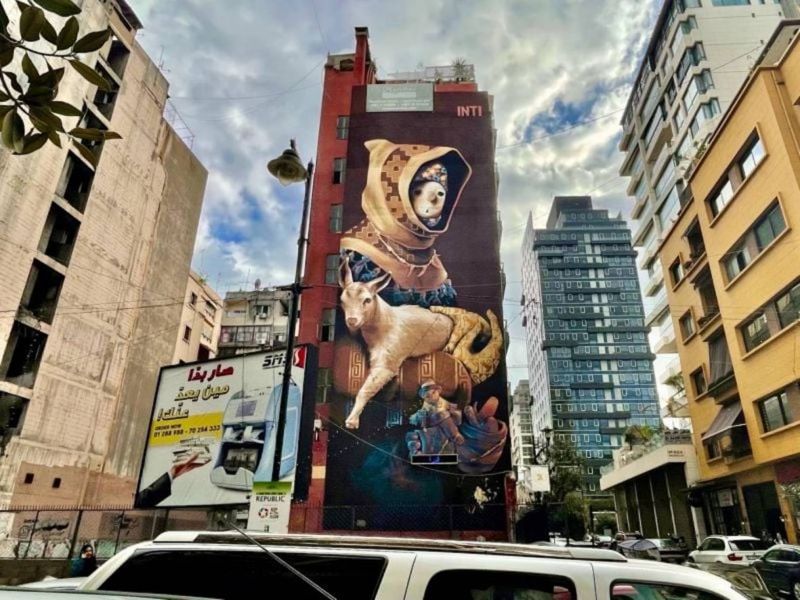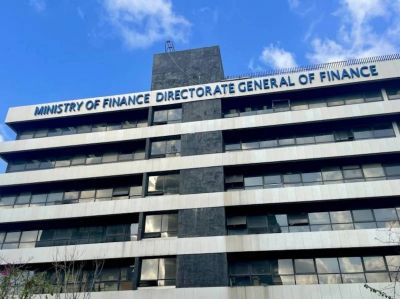
Hamra street, Ras Beirut. (Credit: Philippe Hage Boutros)
Lebanese authorities are rushing to put their fiscal house in order. The delayed 2023 draft budget, or finance law, which cabinet adopted Aug. 15, was submitted to Parliament on Monday. Cabinet is also planning to examine the preliminary draft budget for 2024, which the Finance Ministry submitted last week, so that the draft can be put to a vote in Parliament on time — which would be a first in many years.
At this stage, cabinet is highly likely to vote on both draft budgets before the end of the year, although nothing would prevent MPs from ultimately giving the 2023 budget a miss, as they did with the 2021 budget.The 2023 budget will take effect as soon as it is published in the Official Gazette. The 2022 budget thus came into force when it was published on Nov. 15, 2022 — with some retroactive implications that gave accountants headaches. The 2024 budget law would come into force in January.
Desert of reforms
While cabinet’s intentions appear laudable, the problem, as is often the case, lies in the substance of the texts, said Karim Daher, a lawyer, tax expert and president of the Lebanese Association for Taxpayers’ Rights (ALDIC).
“Whether it is about the 2023 or 2024 budget, all we are talking about is adjusting taxes and duties to the depreciation of the national currency and, to a lesser extent, the salaries and other indemnities of civil servants, as well as the expenditure needed to ensure the minimum operation of state institutions and services,” he told L’Orient-Le Jour.
The Lebanese lira has lost 98 percent of its value since the start of the multifaceted crisis in 2019. But it was only with the 2022 budget that authorities began to adjust the lira’s official exchange rate with the US dollar to its market worth. This rate was raised from LL 1507.7 to LL 15,000 in February 2022, but some taxes and duties have now been raised to be in line with the market or the Banque du Liban’s (BDL) Sayrafa platform rate, which is close to the market rate. Since 2022, it has been legal to collect some taxes in foreign currency.
The 2023 draft budget and the preliminary draft for 2024 seem to have the sole aim of continuing this effort, which is admittedly part of the reforms demanded by the International Monetary Fund (IMF), from which Lebanon has requested financial aid, “but which is once again being imposed in defiance of fiscal equity and constitutional rules,” said Daher.
“Taxes are slightly lower than they were before the crisis,” he said. “The problem is that there is nothing in any of the draft budgets that takes into account the dilapidated state of public services, nothing to give a signal to investors that the state is trying to improve the business environment, no impact study, nothing on how to finance the deficit or support the debt in a sustainable way, when the country is in default.”
“It’s a deluge of tax adjustments on a desert of reforms and ideas,” he added. “Once again, there is no visible vision or strategy, and investment spending is virtually non-existent compared to operating expenditure.”
Contacted to defend cabinet’s approach, caretaker Finance Minister Youssef Khalil did not respond to our request for comment.
Daher also pointed out that the 2024 preliminary draft is based on the assumption that Parliament has adopted the 2023 budget as is, which is far from certain at this stage. In his view, this choice could dampen cabinet’s will to force through the first of these two finance laws.
“This is particularly apparent in the comparative tables which relay the data from the latter draft as approved by the cabinet,” he said.
The lion’s share of the VAT
L’Orient-Le Jour already reported on some of the measures adopted in the 2023 draft budget, when it was still at the preliminary stage. Its successor, which we reviewed with the help of Daher and a source from the Lebanese Business Leaders Association (RDCL), also includes a raft of tax adjustments.
VAT is given special treatment in order to enable it to reach the planned target of 34 percent of total revenues and 43 percent of tax revenues, making it one of the state’s main sources of income.
Daher reiterated that this is an indirect and regressive tax, imposing a heavier burden on modest taxpayers than on those who are well off, despite the many exemptions for basic necessities.
He also highlighted the fact that, on the whole, the ratio of regressive indirect taxes to direct taxes in the 2024 draft budget has increased substantially, by about two-thirds. Previously, notably following a 2017 adjustment in the taxation of capital gains on property and income, that ratio had been slightly favoring direct taxes.
- As we said last week, VAT will be raised by one percentage point to 12 percent — a measure introduced by Article 20.
- Article 18 goes one step further and makes people or companies organizing a public evening, a concert or any other event of this type liable to VAT, regardless of their annual turnover. In theory, this measure could therefore apply to NGOs organizing fundraisers for charitable purposes.
- It doesn’t stop there: Article 19 gives taxpayers whose annual revenue does not exceed LL5 billion (nearly $60,000 at Sayrafa rate which is LL 85,500 to the dollar) the option of choosing the special micro-business regime. Under this scheme, the state collects the same VAT percentage as applicable to the flat profit rate without granting the business concerned the right to deduct VAT on the expenditure it incurs.
- However, an initial increase in this threshold was introduced in the 2023 draft budget, raising it from LL 100 million ($1,170 at the same rate) to LL 750 million ($8,771), which illustrates the idea that cabinet takes the changes made in the 2023 draft budget as certain. According to the RDCL source, Article 19 seems to indirectly signal that the turnover threshold for VAT liability has been raised from LL 100 million to LL 5 billion per year, in the hope that the wording of the article will be clarified.
Facilitation payments and dollar taxes
The VAT is not the only source of revenue on which the state relies, but the consequences and risks can be very serious for taxpayers.
- Article 21, for example, legalizes and articulates “facilitation payments,” i.e. sums that citizens can pay to the public administration to complete certain administrative formalities more quickly. This is a way of legalizing the “bribes” that have always existed in Lebanon, no more and no less, kickbacks whose importance has grown as the salaries of Lebanese civil servants have depreciated with the crisis. This type of service is regulated elsewhere, notably in the United States and Australia. “The risk, in a crisis-hit Lebanon where the rule of law is struggling to establish itself, is that it will no longer be possible to carry out a given formality without paying this new addition, if it is adopted,” said Daher.
- Article 26 requires payroll tax to be paid in the same currency as the salary paid. In order to calculate this tax, the salary must be converted into lira at a rate equivalent to 40 percent of Sayrafa rate at the time it was received; the proceeds from the tax must then be converted into the currency in which the salary was paid at the Sayrafa rate. After the 2022 budget law came into force, the rate used to calculate this tax was set at LL15,000. The changeover to the new system in 2024 is likely to be painful for many businesses.
- The preliminary draft budget contains several articles that give cabinet too much latitude to change the way certain taxes are applied — to the point of allowing it to intervene in the amount of the tax itself, a prerogative normally reserved for Parliament. This is particularly the case with Article 58, which focuses on waste collection taxes imposed by municipalities, as well as consumption taxes imposed to “protect the environment.”
- Article 26 takes up a proposal by ALDIC by opening up the possibility for taxpayers to pay their taxes and penalty dues on any tax offense relating to the period prior to Nov. 15, 2022 (the date on which that year’s budget comes into force) in “lollars,” which is the dollar blocked by the banking restrictions imposed at the end of 2019 without any legal framework.
This story originally ran in French in L'Orient-Le Jour, translated by Joelle Khoury.
